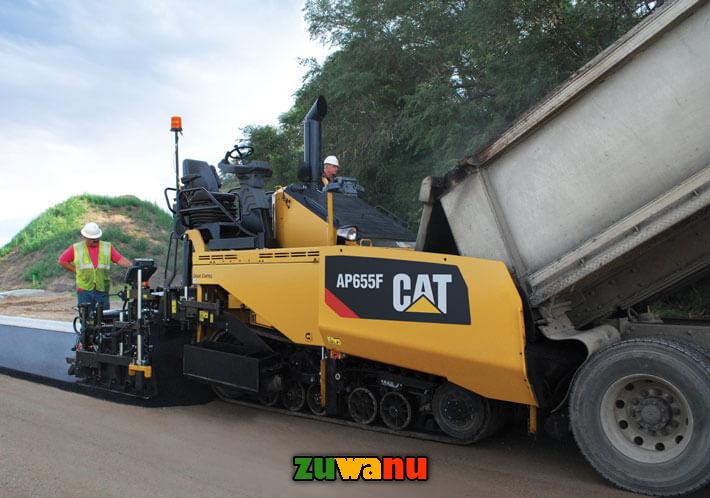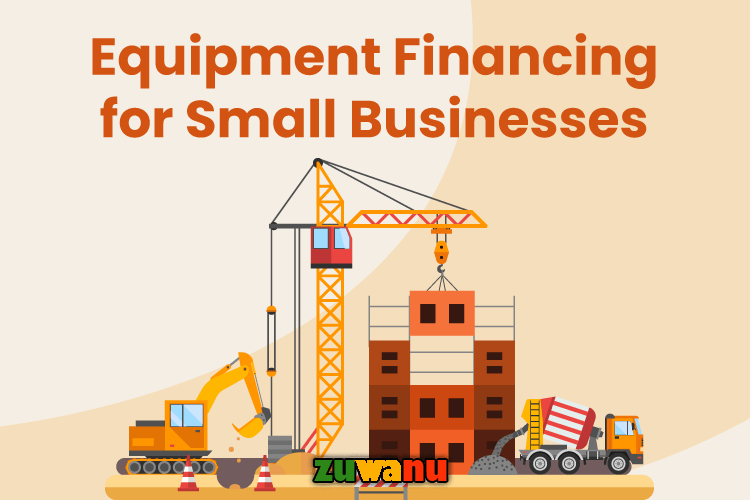Paving Equipment Financing Options: A Comprehensive Guide
Paving Equipment Financing Options: A Comprehensive Guide
Table of Contents

Paving equipment is essential for construction companies and contractors involved in road construction, parking lot paving, and various other infrastructure projects. However, acquiring and maintaining this heavy machinery can be a significant financial burden. This is where paving equipment financing options come into play. In this comprehensive guide, we will delve into everything you need to know about financing paving equipment, including the various financing options available, their benefits and drawbacks, and how to choose the right financing solution for your specific needs.
Introduction (Paving Equipment Financing Options)
Paving equipment, which includes asphalt pavers, rollers, and milling machines, is instrumental in creating smooth and durable road surfaces. For construction companies and contractors, owning and maintaining such equipment is often a costly endeavor. The high upfront costs, maintenance expenses, and the need to stay updated with the latest technology can strain a company’s financial resources.
To alleviate this financial burden, businesses have the option to explore various financing solutions tailored to the paving equipment industry. These financing options enable companies to acquire, upgrade, or replace their equipment without having to make a substantial upfront investment. This article will guide you through the different paving equipment financing options available, their advantages and disadvantages, and essential considerations when choosing the right financing solution for your business.
Understanding Paving Equipment Financing
Before delving into the specific financing options, it’s essential to understand the concept of equipment financing and its relevance in the paving industry.
What Is Paving Equipment Financing?
Paving equipment financing is a financial arrangement that allows businesses to acquire the necessary machinery and equipment without paying the full purchase price upfront. Instead, they make regular payments over a specified period, typically through leasing or financing agreements. These agreements come in various forms, each with its terms and conditions, interest rates, and benefits.
Paving equipment financing can help businesses address several challenges:
- Preserve Working Capital: Financing equipment enables businesses to preserve their working capital for other essential expenses such as payroll, materials, and operational costs.
- Access to Modern Equipment: The construction industry is evolving, with technological advancements improving the efficiency and quality of paving equipment. Financing allows businesses to access and use state-of-the-art machinery without incurring massive upfront costs.
- Tax Benefits: Depending on your location and specific financing arrangement, you may be eligible for tax benefits, such as deductions on interest payments and depreciation.
- Flexible Terms: Financing options offer flexibility in terms of repayment schedules, making it easier to match payments with revenue generation.
Now that we understand the importance of paving equipment financing let’s explore the various options available.
Guide to Equipment Financing: Types, Companies, Requirements, and More
Types of Paving Equipment Financing
There are several financing options for paving equipment, each catering to different business needs and financial situations. Here are some of the most common types:
1. Equipment Loans
Equipment loans are a straightforward and commonly used financing option. Under this arrangement, a business borrows a specific amount to purchase the paving equipment. The equipment itself serves as collateral for the loan, which means that if the business defaults on payments, the lender can repossess the equipment.
Pros:
- Ownership: Once the loan is paid off, the business owns the equipment outright.
- Tax Benefits: Depending on local tax laws, businesses may be able to deduct the interest on equipment loans.
- No Restrictions: Equipment loans typically do not have usage restrictions, allowing businesses to use the equipment as needed.
Cons:
- Down Payment: Some equipment loans may require a substantial down payment, which can strain a company’s finances.
- Interest Rates: Interest rates on equipment loans can vary, and businesses with lower credit scores may face higher rates.
- Risk of Depreciation: If the equipment’s value depreciates rapidly, the business may end up owing more than the equipment is worth.
2. Equipment Leasing
Equipment leasing is another popular financing option in the construction industry. Instead of purchasing the equipment, the business enters into a lease agreement where they make regular payments for the use of the equipment. At the end of the lease term, businesses often have the option to purchase the equipment at fair market value or enter into a new lease for upgraded machinery.
Pros:
- Lower Upfront Costs: Leasing typically requires little to no down payment, making it more accessible for businesses with limited capital.
- Easy Upgrades: At the end of the lease term, businesses can choose to upgrade to newer equipment without the hassle of selling or disposing of the old machinery.
- Predictable Costs: Monthly lease payments are fixed, making it easier to budget and plan for expenses.
Cons:
- No Ownership: Businesses do not own the equipment when leasing, which means they do not build equity in the machinery.
- Long-Term Costs: Over the long term, leasing can be more expensive than purchasing, as the business continues to make payments without building ownership.
- Lease Terms: Lease agreements can have strict terms, including usage restrictions and penalties for early termination.
3. Equipment Rental

Equipment rental is a short-term solution for businesses that require paving equipment for specific projects or during peak seasons. Instead of purchasing or leasing equipment, businesses rent it for a predetermined period.
Pros:
- No Long-Term Commitment: Rentals are ideal for short-term projects or seasonal work where a long-term commitment is not necessary.
- Maintenance Included: Rental companies often include maintenance and repairs as part of the rental agreement, reducing the business’s maintenance costs.
- No Ownership Costs: Businesses do not have to worry about depreciation, storage, or ownership costs associated with equipment.
Cons:
- Higher Total Costs: Over the long term, renting equipment can be more expensive than purchasing or leasing, as rental fees accumulate without building equity.
- Limited Availability: Depending on location and demand, specific equipment may not always be readily available for rent.
- No Equity: Like leasing, rental agreements do not provide ownership or equity in the equipment.
4. Equipment Financing Agreements
Equipment financing agreements, also known as equipment financing leases or equipment finance agreements (EFAs), are similar to loans but offer more flexible terms. Under these agreements, the lender purchases the equipment on behalf of the business and then leases it to the business for regular payments. At the end of the term, the business typically has the option to purchase the equipment for a nominal fee.
Pros:
- Flexibility: EFAs offer flexible terms and may include options for purchase at the end of the lease term.
- Minimal Down Payment: Some EFAs may require a lower down payment compared to traditional equipment loans.
- Tax Benefits: Depending on the agreement, businesses may be eligible for tax benefits such as interest deductions.
Cons:
- Ownership Timing: While EFAs offer the option to purchase the equipment, businesses do not own it until they exercise this option.
- Interest Rates: Interest rates on EFAs can vary, and businesses with weaker credit may face higher rates.
- Complexity: The terms and conditions of EFAs can be complex, and businesses should carefully review the agreement before signing.
5. Dealer Financing
Dealer financing is a financing option offered by equipment dealerships themselves. In this arrangement, the dealership provides financing solutions to customers looking to purchase equipment directly from them. It simplifies the purchasing process, as businesses can finance the equipment and acquire it from the same dealer.
Pros:
- Streamlined Process: Dealer financing simplifies the equipment acquisition process by offering financing directly from the seller.
- Knowledgeable Support: Dealerships are often experts in the equipment they sell and can provide valuable information and guidance.
- Competitive Rates: Some dealerships may offer competitive financing rates to attract customers.
Cons:
- Limited Options: Dealer financing may have limited flexibility in terms of financing options compared to traditional lenders.
- Potential Bias: Dealerships may have a vested interest in selling specific brands or models, which could influence their financing recommendations.
- Limited Availability: Not all equipment dealerships offer financing options, limiting choices for buyers.
How to Choose the Right Paving Equipment Financing Option
Selecting the right paving equipment financing option is a crucial decision for any construction business. It involves careful consideration of your financial situation, project requirements, and long-term goals. Here are the key steps to help you make an informed decision:
1. Assess Your Financial Situation
Begin by evaluating your company’s financial health. Determine how much capital you have available for equipment acquisition and how it aligns with your overall budget. Consider factors such as your cash flow, existing debt obligations, and creditworthiness.
Questions to Ask:
- What is your budget for equipment acquisition?
- Can you afford a down payment if required?
- How will equipment financing impact your cash flow?
2. Define Your Equipment Needs
Clearly define the type and quantity of equipment you need for your projects. Consider the size and scale of your operations, the specific equipment models that best suit your projects, and whether you require new or used machinery.
Questions to Ask:
- What type of paving equipment do you need (e.g., asphalt pavers, rollers, milling machines)?
- How many pieces of equipment do you require?
- Do you prefer new or used equipment?
3. Compare Financing Options
Research and compare the various financing options available. Consider the pros and cons of equipment loans, leases, rentals, equipment financing agreements, and dealer financing. Look for financing solutions that align with your budget and equipment needs.
Questions to Ask:
- Which financing options are available in your area?
- What are the interest rates and terms associated with each option?
- Do the financing options offer flexibility in terms of down payments and repayment schedules?
4. Evaluate Total Costs
Calculate the total costs associated with each financing option over the long term. This includes not only the principal amount but also interest, fees, and any additional costs related to maintenance and insurance.
Questions to Ask:
- How much will you pay in total for the equipment under each financing option?
- Are there any hidden fees or costs associated with the financing agreement?
- What is the cost of ownership for each option?
5. Consider Tax Implications
Consult with a tax advisor or accountant to understand the tax implications of each financing option. Some financing arrangements may offer tax benefits, such as deductions on interest payments and depreciation.
Questions to Ask:
- What are the tax benefits associated with each financing option?
- How will the financing arrangement impact your company’s tax liability?
6. Review Contract Terms
Carefully review the terms and conditions of the financing agreement before signing. Pay attention to interest rates, repayment schedules, penalties for early termination, and any restrictions on equipment usage.
Questions to Ask:
- Are the contract terms clear and transparent?
- Do you fully understand your rights and responsibilities under the agreement?
- Are there any conditions that could lead to additional costs or penalties?
7. Seek Professional Advice
Consider seeking advice from financial advisors or industry experts who specialize in equipment financing for the construction and paving industry. They can provide valuable insights and help you make an informed decision.
Questions to Ask:
- Have you consulted with financial experts or advisors who understand the paving industry?
- Have you received recommendations based on your specific business needs?
8. Negotiate and Customize
Don’t hesitate to negotiate the terms of your financing agreement to better suit your needs. Some lenders may be willing to adjust interest rates, down payment requirements, or other terms to secure your business.
Questions to Ask:
- Are there any aspects of the financing agreement that you would like to negotiate or customize?
- Have you communicated your specific needs and preferences to the lender or lessor?
9. Plan for Future Growth
Consider how your equipment financing choice aligns with your company’s growth plans. Will the financing option allow you to expand your fleet as your business grows, or will it limit your flexibility?
Questions to Ask:
- How will your choice of equipment financing impact your company’s ability to scale and take on larger projects?
- Does the financing arrangement allow for easy equipment upgrades or additions?
10. Seek References and Reviews
Research the reputation of the lender, lessor, or dealership offering financing. Look for reviews and seek references from other businesses in the construction industry that have used the same financing provider.
Questions to Ask:
- Are there positive reviews and references from other construction businesses that have used the same financing provider?
- Does the provider have a track record of reliable service and customer support?
Conclusion
Paving equipment financing is a critical decision that can significantly impact your construction business’s financial health and operational efficiency. By understanding the various financing options available, assessing your financial situation, and carefully considering your equipment needs, you can make an informed choice that aligns with your long-term goals.
Whether you opt for equipment loans, leases, rentals, equipment financing agreements, or dealer financing, each option has its advantages and drawbacks. Your choice should reflect your company’s unique circumstances, budget, and growth aspirations.
Remember that the construction industry is dynamic, with new technologies and equipment constantly emerging. Be prepared to adapt your equipment financing strategy as your business evolves to stay competitive and efficient in the ever-changing world of paving construction. Ultimately, the right paving equipment financing option will not only help you acquire the necessary machinery but also contribute to your company’s success and sustainability in the long run.
